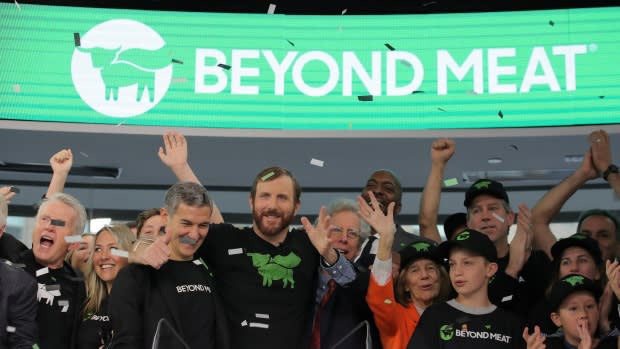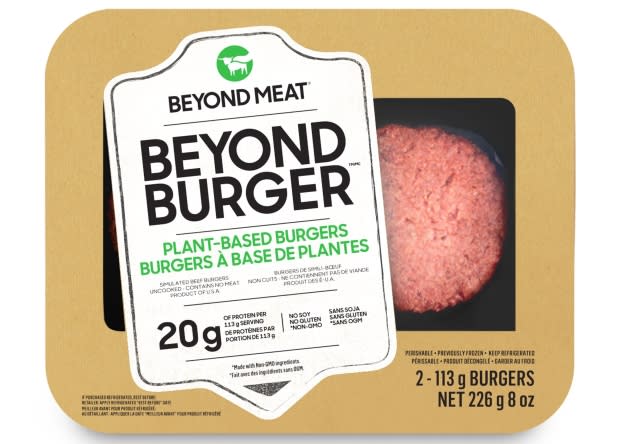Beyond Meat: should you buy into the hype?
In its first day of trading, the stock price of Beyond Meat, which produces plant-based meat substitutes, experienced one of the largest first-day pops in recent history.
It opened the day on May 2 at $25 per share and went as high as $72 before closing at $63.75 per share. That's a one-day return of 163 per cent.
Beyond Meat isn't just targeting vegans and vegetarians, it also has its sights set on the multi-trillion-dollar meat industry. Its goal is to produce a sustainable, cheaper protein that has the taste, look and texture of meat. If successful, investors believe that Beyond Meat will revolutionize our eating habits.
My family and I are their target customers. We care about the environment, want to reduce our carbon footprint and love animals. But we also enjoy eating meat. I tried their burgers and was pleasantly surprised. It convinced me that the plant-based meat substitute industry is for real and could grow dramatically over the next 25 to 50 years.
That said, I haven't bought the stock.
Reasons to not buy in
If I bought at today's price it would be for emotional reasons. I love the product, the brand and story that comes along with it. Emotional investors tend to buy high and sell low, something I don't want to do. I need to remain practical and consider the financial side of things.
According to the underwriters, the fair market value of the stock is $25. If the underwriters, who had access to all Beyond Meat's financial information, believe the value to be $25, why would I pay $66.22, the stock's closing price on Friday. That's like someone paying $2.6 million for a house that was assessed at $1 million yesterday.
Beyond Meat lost $30 million last year and it may not be profitable for years. They have a number of competitors such as Impossible Foods, the company that supplies Burger King with their meat alternative patties, and they must also contend with traditional meat producers like Tyson Foods. Tyson Foods was an early investor in Beyond Meat, but sold its stake in the company to launch its own meat substitute.
Buyer's exhaustion
Long-term investors need to be careful when buying into any hyped-up stock. You are investing in an environment where there are few sellers, many buyers and escalating prices. You can also expect heightened volatility due to the day trading of speculators along with robotic and algorithmic trading.
Eventually — it may be days or months — the FOMO (fear of missing out) dissipates, and the stock enters a period of "buyer's exhaustion." That's when everyone who wanted to buy has bought and prices start to trend down. The market goes from a seller's market to a balanced market.
A good example of this is Tilray, a marijuana stock that was launched last year at $17. The demand was so great that in just two months its price climbed to $300 per share. However, after the hype subsided, the price dropped to where it is today at $46. Other examples are Snapchat and Lyft, which saw an initial pop up, but are now trading below their initial public offering prices.
For those who are planning on buying Beyond Meat stock, be aware of the risks, start small and be patient. If your instincts are correct and the stock price doubles, take back your initial investment, but keep the profits invested.
For me, I'm waiting for the hype and demand to dissipate before investing. At today's valuation, I'm comfortable remaining a customer rather than a shareholder of Beyond Meat.
This column is part of CBC's Opinion section. For more information about this section, please read this editor's blog and our FAQ.





